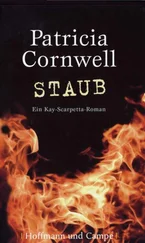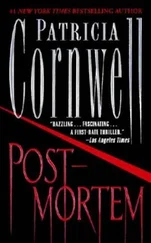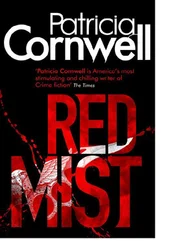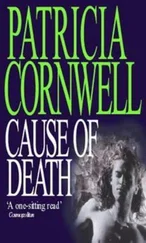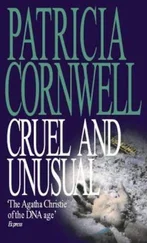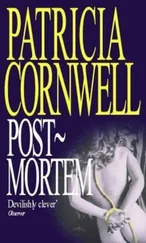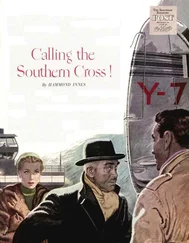Patricia Cornwell - Southern Cross
Здесь есть возможность читать онлайн «Patricia Cornwell - Southern Cross» весь текст электронной книги совершенно бесплатно (целиком полную версию без сокращений). В некоторых случаях можно слушать аудио, скачать через торрент в формате fb2 и присутствует краткое содержание. Жанр: Триллер, на английском языке. Описание произведения, (предисловие) а так же отзывы посетителей доступны на портале библиотеки ЛибКат.
- Название:Southern Cross
- Автор:
- Жанр:
- Год:неизвестен
- ISBN:нет данных
- Рейтинг книги:4 / 5. Голосов: 1
-
Избранное:Добавить в избранное
- Отзывы:
-
Ваша оценка:
- 80
- 1
- 2
- 3
- 4
- 5
Southern Cross: краткое содержание, описание и аннотация
Предлагаем к чтению аннотацию, описание, краткое содержание или предисловие (зависит от того, что написал сам автор книги «Southern Cross»). Если вы не нашли необходимую информацию о книге — напишите в комментариях, мы постараемся отыскать её.
Southern Cross — читать онлайн бесплатно полную книгу (весь текст) целиком
Ниже представлен текст книги, разбитый по страницам. Система сохранения места последней прочитанной страницы, позволяет с удобством читать онлайн бесплатно книгу «Southern Cross», без необходимости каждый раз заново искать на чём Вы остановились. Поставьте закладку, и сможете в любой момент перейти на страницу, на которой закончили чтение.
Интервал:
Закладка:
Patricia Cornwell
Southern Cross
Chapter One
The last Monday morning of March began with promise in the historic city of Richmond, Virginia, where prominent family names had not changed since the war that was not forgotten. Traffic was scant on downtown streets and the Internet. Drug dealers were asleep, prostitutes tired, drunk drivers sober, pedophiles returning to work, burglar alarms silent, domestic fights on hold. Not much was going on at the morgue.
Richmond, built on seven or eight hills, depending on who counts, is a metropolitan center of unflagging pride that traces its roots back to 1607, when a small band of fortune-hunting English explorers got lost and laid claim to the region by planting a cross in the name of King James. The inevitable settlement at the fall line of the James River, predictably called 'The Falls', suffered the expected tribulations of trading posts and forts, and anti-British sentiments, revolution, hardships, floggings, scalpings, treaties that didn't work and people dying young.
Local Indians discovered firewater and hangovers, and traded herbs, minerals and furs for hatchets, ammunition, cloth, kettles and more firewater. Slaves were shipped in from Africa. Thomas Jefferson designed Monticello, the Capitol and the state penitentiary. He founded the University of Virginia, drafted the Declaration of Independence and was accused of fathering mulatto children. Railroads were constructed. The tobacco industry flourished and nobody sued.
All in all, life in the genteel city ambled along reasonably well until 1861, when Virginia decided to secede from the Union and the Union wouldn't go along with it. Richmond did not fare well in the Civil War. Afterward, the former capital of the Confederacy went on as best it could with no slaves and bad money. It remained fiercely loyal to its defeated cause, still flaunting its battle flag, the Southern Cross, as Richmonders marched into the next century and survived other terrible wars that were not their problem because they were fought elsewhere.
By the late twentieth century, things were going rather poorly in the capital city. Its homicide rate had climbed as high as second in the nation. Tourism was suffering. Children were carrying guns and knives to school and fighting on the bus. Residents and department stores had abandoned downtown and fled to nearby counties. The tax base was shrinking. City officials and city council members didn't get along. The governor's antebellum mansion needed new plumbing and wiring.
General Assembly delegates continued slamming desktops and insulting one another when they came to town, and the chairman of the House Transportation Committee carried a concealed handgun onto the floor.
Dishonest gypsies began dropping by on their migrations north and south, and Richmond became a home away from home for drug dealers traveling along 1-95.
The timing was right for a woman to come along and clean house. Or perhaps it was simply that nobody was looking when the city hired its first female police chief, who this moment was out walking her dog. Daffodils and crocuses were blooming, the morning's first light spreading across the horizon, the temperature an unseasonable seventy degrees. Birds were chatty from the branches of budding trees, and Chief Judy Hammer was feeling uplifted and momentarily soothed.
'Good girl, Popeye,' she encouraged her Boston terrier.
It wasn't an especially kind name for a dog whose huge eyes bulged and pointed at the walls. But when the SPCA had shown the puppy on TV and Hammer had rushed to the phone to adopt her, Popeye was already Popeye and answered only to that name.
Hammer and Popeye kept a good pace through their restored neighborhood of Church Hill, the city's original site, quite close to where the English planted their cross. Owner and dog moved briskly past antebellum homes with iron fences and porches, and slate and false mansard roofs, and turrets, stone lintels, chased wood, stained glass, scroll-sawn porches, gables, raised so-called English and picturesque basements, and thick chimneys.
They followed East Grace Street to where it ended at an overlook that was the most popular observation point in the city. On one side of the precipice was the radio station WRVA, and on the other was Hammer's nineteenth-century Greek Revival house, built by a man in the tobacco business about the time the Civil War ended. Hammer loved the old brick, the bracketed cornices and flat roof, and the granite porch. She craved places with a past and always chose to live in the heart of the jurisdiction she served.
She unlocked the front door, turned off the alarm system, freed Popeye from the leash and put her through a quick circuit of sitting, sitting pretty and getting down, in exchange for treats. Hammer walked into the kitchen for coffee, her ritual every morning the same. After her walk and Popeye's continuing behavioral modification, Hammer would sit in her living room, scan the paper and look out long windows at the vista of tall office buildings, the Capitol, the Medical College of Virginia and acres of Virginia Commonwealth University's Biotechnology Research Park. It was said that Richmond was becoming the 'City of Science', a place of enlightenment and thriving health.
But as its top law enforcer surveyed edifices and downtown streets, she was all too aware of crumbling brick smokestacks, rusting railroad tracks and viaducts, and abandoned factories and tobacco warehouses with windows painted over and boarded up. She knew that bordering downtown and not so far from where she lived were five federal housing projects, with two more on Southside. If one told the politically incorrect truth, all were breeding grounds for social chaos and violence and were clear evidence that the Civil War continued to be lost by the South.
Hammer gazed out at a city that had invited her to solve its seemingly hopeless problems. The morning was lighting up and she worried there would be one cruel cold snap left over from winter. Wouldn't that be just like everything else these days, the final petty act, the eradication of what little beauty was left in her horrendously stressful life? Doubts crowded her thoughts.
When she had forged the destiny that had brought her to Richmond, she had refused to entertain the possibility that she had become a fugitive from her own life. Her two sons were grown and had distanced themselves from her long before their father, Seth, had gotten ill and died last spring. Judy Hammer had bravely gone on, gathering her life's mission around her like a crusader's cape.
She resigned from the Charlotte P.D., where she had been resisted and celebrated for the miracles she wrought as its chief. She decided it was her calling to move on to other southern cities and occupy and raze and reconstruct. She made a proposal to the National Institute of Justice that would allow her to pick beleaguered police departments across the South, spend a year in each, and bring all of them into a union of one-for-all and all-for-one.
Hammer's philosophy was simple. She did not believe in cops' rights. She knew for a fact that when officers, the brass, precincts and even chiefs seceded from the department to do their own thing, the result was catastrophic. Crime rates went up. Clearance rates went down. Nobody got along. The citizens that law enforcement was there to protect and serve locked their doors, loaded their guns, cared not for their neighbors, gave cops the finger and blamed everything on them. Hammer's blueprint for enlightenment and change was the New York Crime Control Model of policing known as COMSTAT, or computer-driven statistics.
The acronym was an easy way to define a concept far more complicated than the notion of using technology to map crime patterns and hot spots in the city. COMSTAT held every cop accountable for everything. No longer could the rank and file and their leaders pass the buck, look the other way, not care, not know the answer, say they couldn't help it, were about to get around to it, hadn't been told, forgot, meant to, didn't feel well or were on the phone or off duty at the time, because on Mondays and Fridays Chief Hammer assembled representatives from all precincts and divisions and gave them hell.
Читать дальшеИнтервал:
Закладка:
Похожие книги на «Southern Cross»
Представляем Вашему вниманию похожие книги на «Southern Cross» списком для выбора. Мы отобрали схожую по названию и смыслу литературу в надежде предоставить читателям больше вариантов отыскать новые, интересные, ещё непрочитанные произведения.
Обсуждение, отзывы о книге «Southern Cross» и просто собственные мнения читателей. Оставьте ваши комментарии, напишите, что Вы думаете о произведении, его смысле или главных героях. Укажите что конкретно понравилось, а что нет, и почему Вы так считаете.

